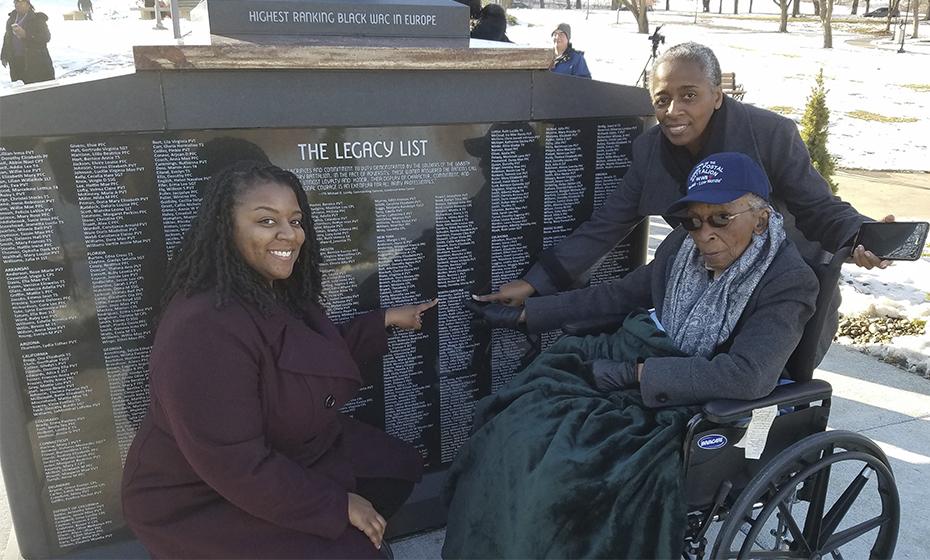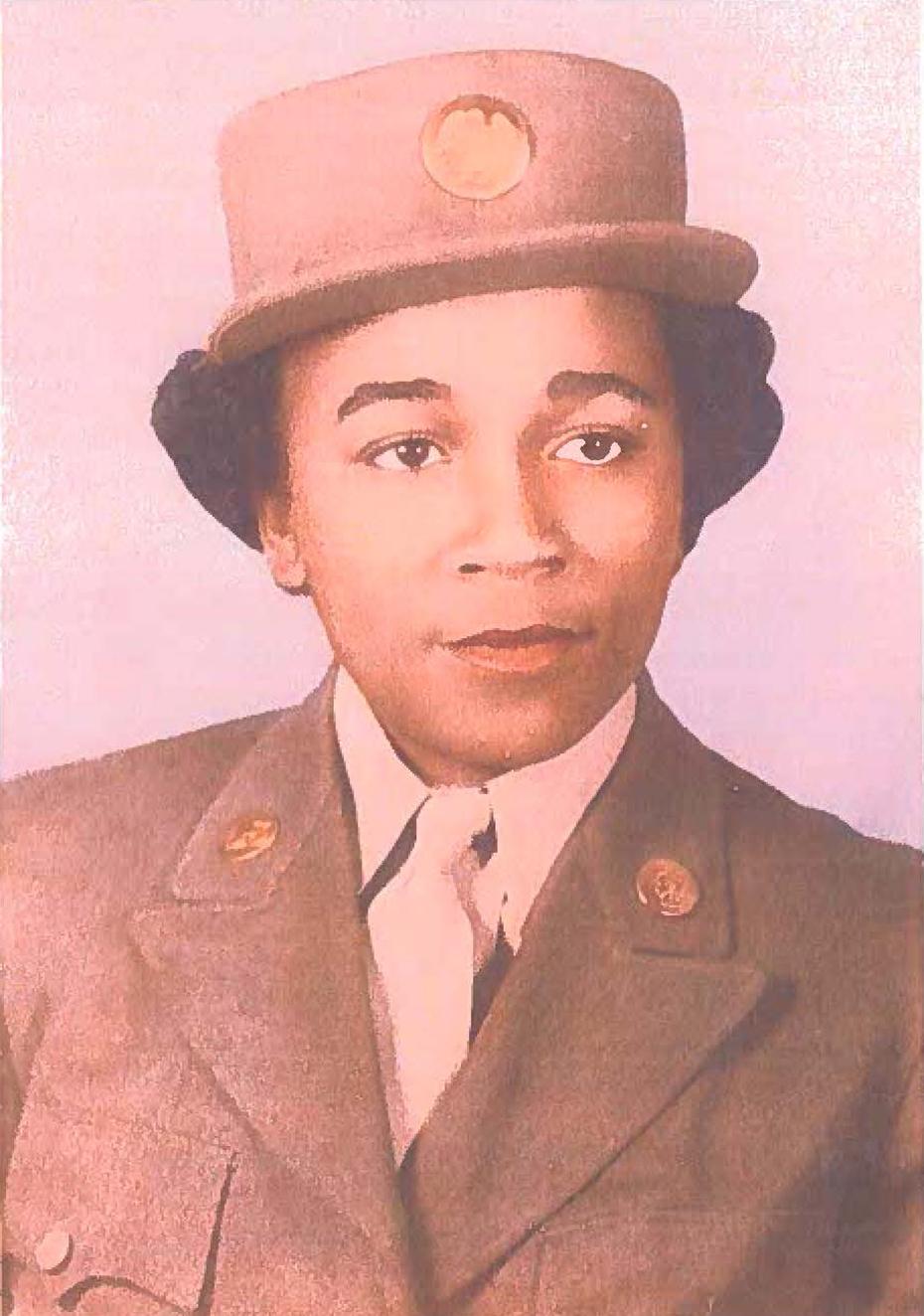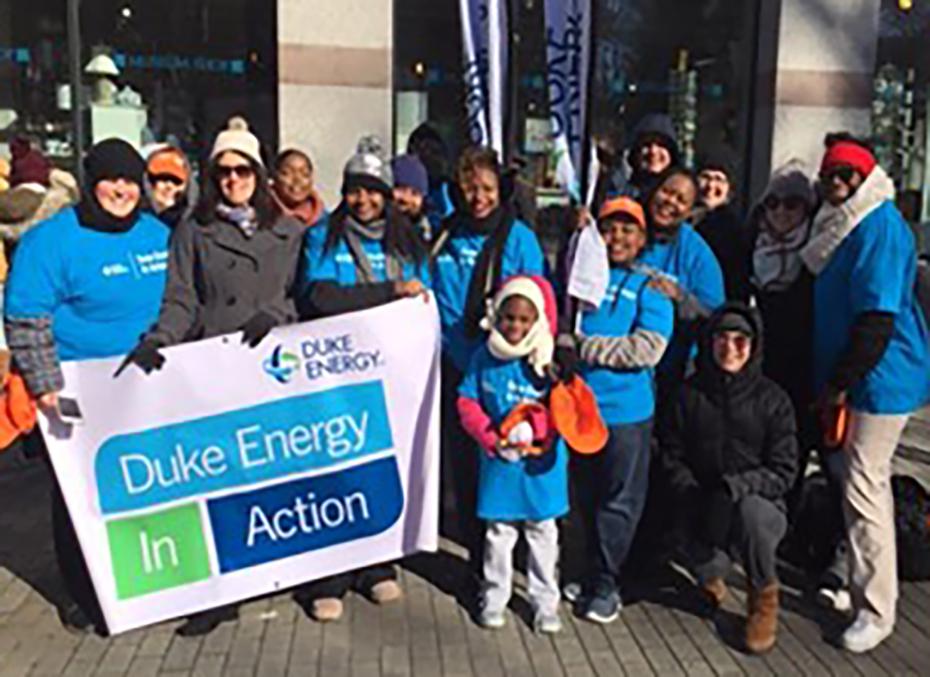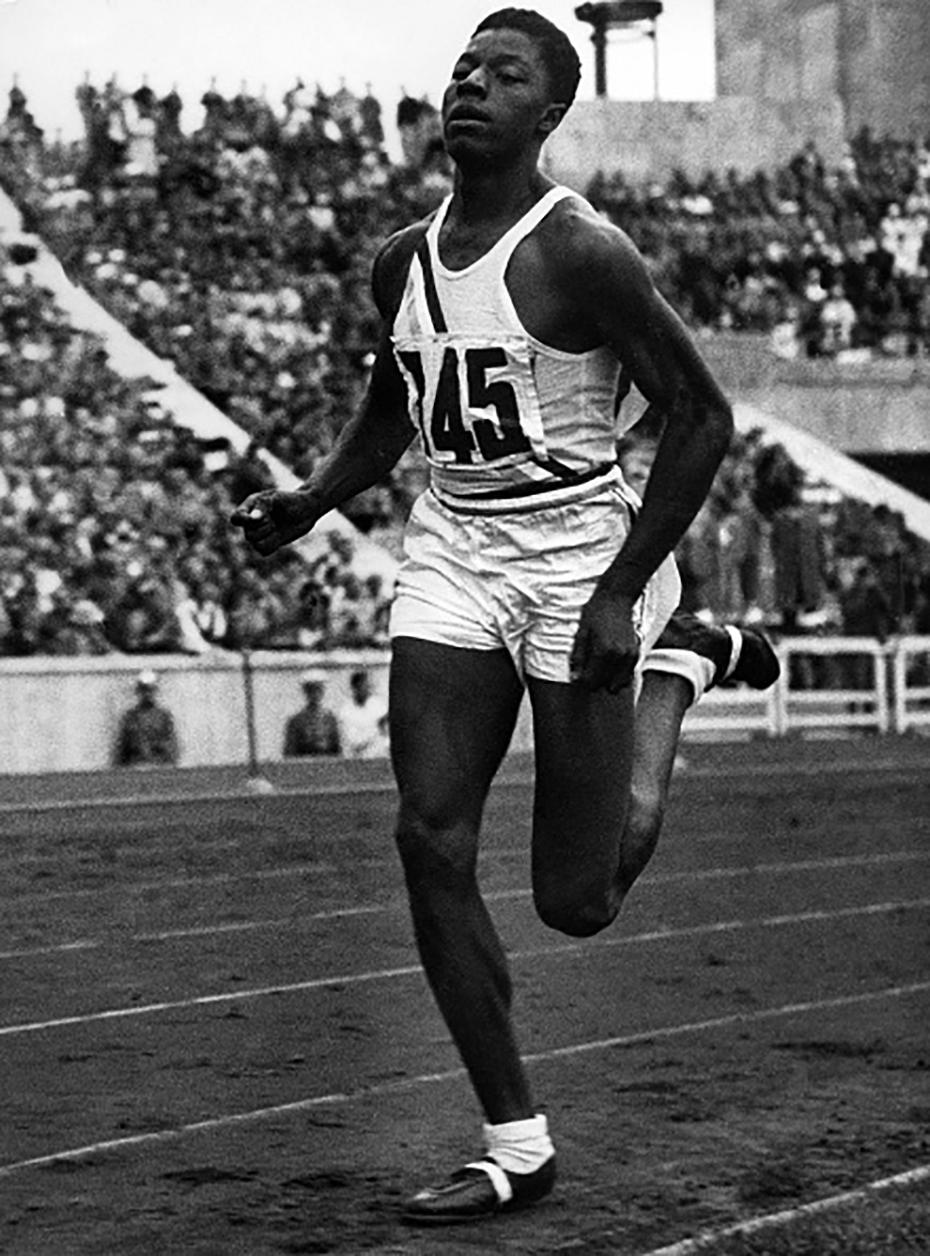What Black History Month Means to These Duke Energy Employees
Employees share the importance of celebrating Black History Month
Originally published on illumination
Since 1976, February has been a designated month to honor the accomplishments of black Americans and celebrate their contributions to our culture and history. Black History Month and other history and heritage celebrations support Duke Energy’s commitment to diversity and inclusion. According to Duke Energy’s Chief Diversity and Inclusion Officer Joni Davis, these holidays give us an opportunity to better understand the rich traditions and cultures of Duke Energy's employees, customers and communities it serves. For Davis, the month is a time to celebrate and honor the too-often neglected accomplishments of black Americans throughout our history and inspire conversations that lead to on-going education and better understanding.
"Growing up, I didn’t often read about significant contributions made by African Americans to our world as history books leave many of these accomplishments untold. For myself and many others, Black History Month has played an important role in filling that gap. It’s a time to honor and celebrate these achievements and remind us of the adversity that often accompanied the results.”
Other Duke Energy employees shared what the month means to them as well – for some it’s a reminder to learn about important people in history while others remember family and friends who made significant impressions on their lives.
Michele Burton
As a young African-American female, I celebrate black history 365 days a year, but the month of February is a great time to stop and truly reflect on the innovators of my culture who have paved the way for so many of us. As a person who generally loves random trivia, I like to use Black History Month as an opportunity to share a major Black History moment that generates straight from my family tree.
In 1936, my great-great uncle (my great-grandmother’s brother) Johnny Woodruff of Connellsville, Pa., won the 800-meter dash during the Berlin Olympics. As history tells us, this particular Olympics came during Adolf Hitler’s reign, and you can imagine what it may have been like for African-American athletes to compete during these games. In fact, one of Uncle John’s teammates included a better-known athlete, Jesse Owens. The two were pretty good friends on and off the track, as Uncle John served as best man in Owens’ wedding. What’s truly inspiring about Uncle John’s experience in Berlin was that he came from very last place to win the gold medal, after being boxed in by the other runners. At one point during the race he had even stopped running. Uncle John died at the age of 92 in 2007, however his legacy remains. Each athlete who participated in the Berlin Games was given a sapling. Uncle John’s tree is lively as ever in his hometown at the Connellsville High School football stadium/track, and his gold medal is showcased at his alma mater, the University of Pittsburgh.
Wesley Coats
To me, Black History Month means celebrating heritage and culture, honoring achievement and progress, and educating ourselves and others on black history. It is important to acknowledge how far we’ve come and appreciate those who came before us and all that they accomplished. This definitely includes their consistent efforts and will to persevere in the face of adversity that allows us to flourish as a group. Black History Month is a time to rejoice, take pride in, and be thankful for not only who we are and where we come from, but also the strength and character that has been ingrained in our people during the constant battle for justice and equality.
Alisha Johnson
Black History Month is a time to honor the accomplishments of Americans who, throughout history, have not been recognized for their great achievements. It’s also a time to learn the history that is not traditionally taught in our schools. Although, true equality has not been realized, we have come a long way and we still have a long way to go. Hopefully, people will embrace the diversity and realize that we are all the same. We all bleed red. We are just human beings. Our exterior is just our exterior, but until all people are seen as equal, Black History Month is a great way to teach those who do not know of the contributions of black Americans and to give honor to so many who sacrificed and fought for equality.
Tracy King
When asked to define what Black History Month means, we often think of an inventor, national leader, famous activist, etc. Sometimes the person who lives within walking distance of you is really the person you look up to the most. Sometimes that hero (so to speak) is the man that works hard every day to provide for his family. Sometimes a hero is the one who gives a ride to folks in the neighborhood or assists the elderly with daily chores. A hero can be the neighbor who provides the youth with an outdoor experience. Maybe teaching the youth how to hit a baseball, how to throw a football, farming skills or how to be a real-life cowboy. Heroes are those who are reaching and changing the lives of the ones within their circle. A hero can help shape the way we think, the way we act and the way we experience the world we live in. Heroes often shape the community around them without even knowing it. Heroes are just doing what comes natural to them. It is who they are. To me black history month is just a time I can really thank the people who molded and shaped me into the person I have become. Who is your hero? Who are you a hero to? For this month and all the others as well.
Shae Kinard
To me, black history means growth. I think of my great grandmother who was denied so many rights as an African-American woman. She didn’t make it to see Obama in office, but I am sure she would have loved to. To me, our past and our history is something we can never get back or do over. It happened. Our people have been subject to pain and heartache for 400 years.
However, each year is different. Each year we get closer to our goals of being treated equally. Each year we show that, no matter what we are facing, if we stand together all odds can be defeated. To me, Black History Month shows where we came from, and now it should reflect where we are. We have African American political officers along with local law enforcement. We have rights to work, vote and be free in this great land. Of course, nothing is perfect. It is life. We have to undo 400 years of people teaching hate. The 400 years is up. It is 2019, and I am sure just like many Black History Months this one will be amazing. Connect to your roots. Remain humble and proud. Black History does not have to focus on the bad but focus on the strides we have made over time. Happy Black History Month!
LaQuisha Parks
Black History Month is an opportunity to highlight the brilliance of black people, the beauty of black people, and the bold accomplishments made by black people that have been omitted from a westernized culture and mainstream America. It’s one month in 12 to pay homage to people who changed the narrative, rewrote the script and blessed the nation in spite of the obstacles, challenges and intentional actions to bury our progress as people and omit our contributions to the world.
Kendall Rackley
Black History Month to me means acknowledging that black history is American history; that it’s not a subset of history, but it is the history of black Americans, which is intertwined with the founding, expansion and democratization of the country. Black history means acknowledging that this country might not be the size it is had it not been for the black Americans of Haiti, for example. The Haitian Revolution, one of the pivotal slave revolts against Napoleon and the French led to the largest land acquisition in American history, the Louisiana Purchase. This history, which is about black Americans, is certainly American history.
Black History Month means not being ashamed to talk about black historical figures and the continued advances of black people today. It is a month that we not only acknowledge historical figures but also blacks who are currently making history – not just Steph Curry for breaking a record number of threes or Serena for breaking records on the tennis court, but those who are making history now: the rising black leaders that are breaking ground in new industries. It is a month to recognize those who had the courage to speak and protest injustices like Martin Luther King Jr., the creativity to write and educate like W.E.B. Dubois, the passion to fight like Muhammad Ali, the power to lead like Frederick Douglass and the ability to make us laugh like the late Dick Gregory. Not acknowledging the strength of these courageous leaders and the reality of the circumstances they faced is like tearing a piece out of every history book. Martin Luther King Jr. once said “I believe that unarmed truth and unconditional love will have the final word in reality. This is why right, temporarily defeated, is stronger than evil triumphant.” Martin Luther King Jr. saw that through truth and love we can triumph all. The truth is this rich history and the love is the appreciation we have for these historical figures.
Cynthia and Tiffany Scott
To us, Black History Month means celebrating the sacrifices, achievements, hardships and lives of the well-known and little-known blacks that came before us. While we recognize all of their efforts year-round, we especially enjoy taking this time to share with others the contributions of our 98-year-old mother/grandmother and her WWII battalion. The 6888thCentral Postal Battalion was the only all-female, all African-American battalion to serve overseas during the war. They were tasked with clearing out mail that had been backlogged for over two years and distributing it to the correct service member. Their unrecognized efforts helped keep families connected that were separated by the war. They faced racism and sexism while serving a country that, at one time, did not recognize black women as citizens. We admire the strength of these women and all other blacks that came before us. We’re thankful for the things we do not have to go through because they already did and hope to provide the same for future generations.
Adreanne Stuckey
Since I was very young, I have always equated February with Black History Month. During my childhood, my mom would make our family hats with traditional African fabrics and we would wear them to church every Sunday in February. Even though we celebrated Black History Month, my parents always instilled in me that black history is important year around.
Whether it was a lesson from my dad about hidden brown historical figures that were not mentioned in our school history books or being quizzed on black history facts in the car during a road trip, my parents stressed the importance of learning about our history and never forgetting the strength in our blood. In high school during Black History Month, I vividly remember memorizing and reciting "Phenomenal Woman" by Maya Angelou in front of my peers during the Black History Month presentation. I still shiver at the power Maya Angelou’s poem has on me as a black woman in America. Even in my adult years, my mother continues the Black History Month tradition. Every year on Facebook for the last five years, she has posted black history facts daily about an African-American who made a difference in the U.S. Last year, she considered not posting for Black History Month, and the outcry was quite enormous. So many of her friends loved reading the facts and learning something new. Not to mention the flack I gave her and how much I look forward to her postings every year. So, you ask what does Black History Month mean to me? It is an acknowledgment of the African-American impacts on American society but also a firm reminder that I celebrate Black History Month year-round.
Danielle Virgil
Black history means an opportunity to look back at the struggle, triumph and lessons of yesterday. I feel it’s an honor to pay homage to all of the people who worked hard and sacrificed so generations to come can enjoy the fruits of their labor.
It’s an opportunity to rally the troops and let our next generations know the work is not done and engage them to join the ranks of our aging freedom fighters. It’s a celebration of music, culture, diversity and success. Black History Month means another opportunity to show my young daughter the extraordinary accomplishments of our ancestors and reinforce her ability to do anything and be anything. With our times of culture strife on the rise it’s an opportunity to educate and do my part as a servant to make a difference by volunteering and giving back to our communities. Black History Month isn’t just one month but a culmination of generations of knowledge, courage, power and strength to lead future generations to grab the touch and begin the next stage of change. It means saying thank you for the marches, sit ins, the songs and the blood-shed.






